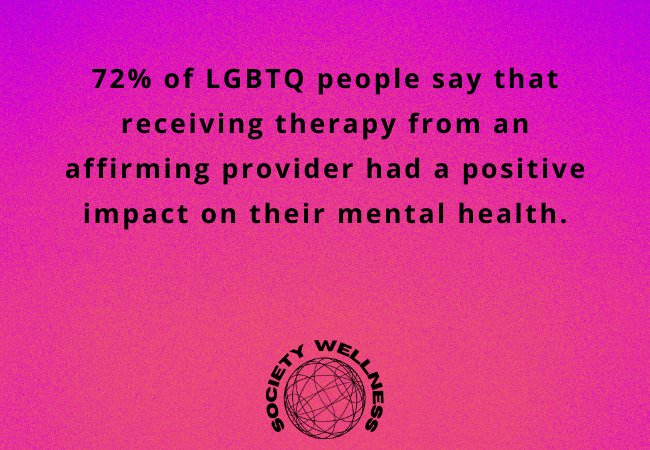Living as an LGBTQ individual in today’s world brings both pride and complexity. While celebrating identity is empowering, it often comes with layers of emotional and psychological strain that are unique to the queer experience. Whether you’re navigating coming out, trauma, relationships, or daily stress, queer-affirming therapy provides a compassionate space to heal.
So, what mental health issues can a queer therapist actually help with?
At LGBTQ Behavioral Health Center Massachusetts, we offer LGBTQ queer therapy in Massachusetts that is deeply rooted in understanding the lived experiences of LGBTQ individuals. Our clinicians are not only skilled in clinical approaches — they are also trained in the cultural, social, and emotional realities of LGBTQ life.
In this blog, we’ll break down the specific mental health challenges queer therapists can help with and how our team supports healing at every level — emotionally, relationally, and culturally.
What Is Queer-Affirmative Therapy?
Queer affirmative therapy Massachusetts is a form of psychotherapy that validates LGBTQ identities and experiences. Rather than treating gender or sexual diversity as peripheral, it places them at the center of the therapeutic process, understanding how societal factors, discrimination, and lived identity affect mental health.
At its core, queer therapy:
- Affirms all gender and sexual identities
- Understands the impact of minority stress and systemic oppression
- Offers nonjudgmental space for exploration and healing
- Challenges heteronormative and cisnormative frameworks
- Celebrates queerness as strength, not dysfunction
Common Mental Health Issues Queer Therapists Address
1. Anxiety Disorders
Living in a society where queerness is often marginalized can lead to chronic stress and anxiety, including:
- Social anxiety due to fear of judgment or misgendering
- Generalized anxiety from navigating identity-related stress
- Panic attacks caused by unresolved trauma or internalized fear
LGBTQ therapy Massachusetts provides coping tools, cognitive-behavioral strategies, and emotion regulation techniques to manage anxious thoughts and triggers.
2. Depression
LGBTQ individuals are nearly twice as likely to experience depression compared to the general population. Factors include:
- Loneliness due to lack of family or community support
- Shame or rejection from religious or cultural upbringing
- Low self-esteem tied to identity invalidation
Queer affirmative counselling Massachusetts helps clients explore root causes, reframe self-worth, and build support systems that uplift their identity.
3. Trauma and PTSD
Many LGBTQ individuals experience trauma — sometimes overt (e.g., hate crimes, assault), other times insidious (e.g., microaggressions, bullying, family rejection).
Trauma-informed queer therapists help with:
- Processing complex trauma (C-PTSD)
- Rebuilding emotional safety and trust
- Somatic practices to release trauma stored in the body
- EMDR and mindfulness-based trauma recovery
At LGBTQ Behavioral Health Center Massachusetts, we offer both individual therapy and LGBTQ Intensive Outpatient Program Massachusetts (IOP) or Partial Hospitalization Program Massachusetts (PHP) for deeper trauma work.
4. Gender Dysphoria and Identity Exploration
For many trans and nonbinary individuals, navigating gender identity brings emotional and psychological strain. Queer therapists:
- Help clients explore gender without pressure or judgment
- Support social, medical, or legal transition processes
- Provide letters of support for gender-affirming care
- Assist with body image struggles and dysphoria
You don’t have to face these questions alone. Affirmative therapy gives you a space to be heard and validated.
5. Relationship Challenges and Communication
Queer therapy is essential in helping individuals and couples with:
- Boundary setting in LGBTQ relationships
- Coming out to a partner or navigating changes in identity
- Conflict resolution in queer partnerships
- Managing nontraditional relationship structures (polyamory, open, queerplatonic)
Through LGBTQ couples therapy Massachusetts and LGBTQ couples counseling Massachusetts, our therapists support authentic connection, safety, and mutual respect.
6. Internalized Homophobia, Biphobia, and Transphobia
One of the most insidious effects of growing up in a heteronormative world is internalizing negativity toward one’s own identity.
Therapy helps you:
- Recognize internalized biases and how they show up
- Deconstruct harmful beliefs about your self-worth
- Replace shame with pride and self-acceptance
Healing begins when you start viewing your identity not as a burden — but as a source of strength.
7. Substance Use and Coping Behaviors
Many LGBTQ people use substances as a way to manage stress, trauma, or social anxiety. Affirming therapy offers harm-reduction and recovery-oriented support without shaming, including:
- Understanding the root causes of substance use
- Building new coping mechanisms
- Supporting sobriety or moderation
- Integrating care with group programs like LGBTQ IOP Massachusetts
8. Disordered Eating and Body Image
Queer individuals often experience body image distress, especially those who are trans, nonbinary, or living outside conventional beauty norms. Therapy helps with:
- Body neutrality and gender affirmation
- Healing eating disorders through an LGBTQ-competent lens
- Reducing the impact of media and societal expectations

Intersectional Mental Health Care
Queer identity doesn’t exist in a vacuum. At LGBTQ Behavioral Health Center Massachusetts, we also consider how race, ethnicity, disability, immigration status, religion, neurodivergence, and socioeconomic background intersect with your mental health.
Our therapists are trained to approach care with cultural humility and an understanding of systemic oppression — helping you feel seen in every part of your identity.
What Makes a Queer Therapist Different?
Here’s how working with a queer-affirming therapist differs from traditional therapy:
- No need to explain your identity, pronouns, or terminology
- Familiarity with LGBTQ-specific stressors, language, and culture
- Celebration of queer joy, resilience, and resistance
- Holistic integration of your mental health with your lived reality
- Understanding of community-specific issues like HIV stigma, chosen family dynamics, and kink/poly relationships
Therapy should never make you feel like your identity is a problem — and with queer therapy, it never will.
Why Choose LGBTQ Behavioral Health Center Massachusetts?
We don’t just “accept” LGBTQ clients — we specialize in supporting you, your experiences, your identity, and your healing.
At our center, you’ll find:
- LGBTQ Queer Therapy in Massachusetts
- Queer Affirmative Therapy Massachusetts from trained, inclusive clinicians
- Couples Therapy for all genders, orientations, and relationship structures
- Structured Support via LGBTQ Partial Hospitalization Program Massachusetts (PHP)
- Flexible, Inclusive IOP Services through LGBTQ Intensive Outpatient Program Massachusetts
- Telehealth and In-Person Options for accessibility
- A Welcoming, Confidential, Empowering Environment
Conclusion
Queer therapy isn’t a trend — it’s a lifeline for LGBTQ individuals seeking peace, clarity, resilience, and connection. No matter what mental health challenge you’re facing — anxiety, trauma, identity confusion, relationship struggles, or simply feeling overwhelmed — you deserve to be supported by someone who affirms every part of who you are.
Call LGBTQ Behavioral Health Center Massachusetts today at 888.964.8116. Let’s build your path to healing — together, in pride, with purpose.
FAQ on Mental Health Issues Queer Therapists Help
What mental health conditions can LGBTQ queer therapy in Massachusetts treat?
Queer therapists help with anxiety, depression, trauma, gender dysphoria, identity stress, substance use, and relationship issues in an affirming, inclusive setting.
How is queer therapy different from traditional therapy?
Queer therapy affirms LGBTQ identities, challenges heteronormativity, and understands the impact of systemic oppression on mental health and relationships.
Can queer therapy help with trauma from discrimination or coming out?
Yes. Queer therapists are trained in trauma-informed care, helping clients heal from experiences like family rejection, bullying, or identity-based violence.
Is queer therapy helpful for couples or non-traditional relationships?
Absolutely. LGBTQ couples therapy Massachusetts supports all relationship structures — including polyamory and queerplatonic partnerships — without judgment.
What programs support intensive LGBTQ mental health needs?
LGBTQ Behavioral Health Center Massachusetts offers both an LGBTQ Partial Hospitalization Program Massachusetts and an LGBTQ Intensive Outpatient Program Massachusetts for deeper support.

